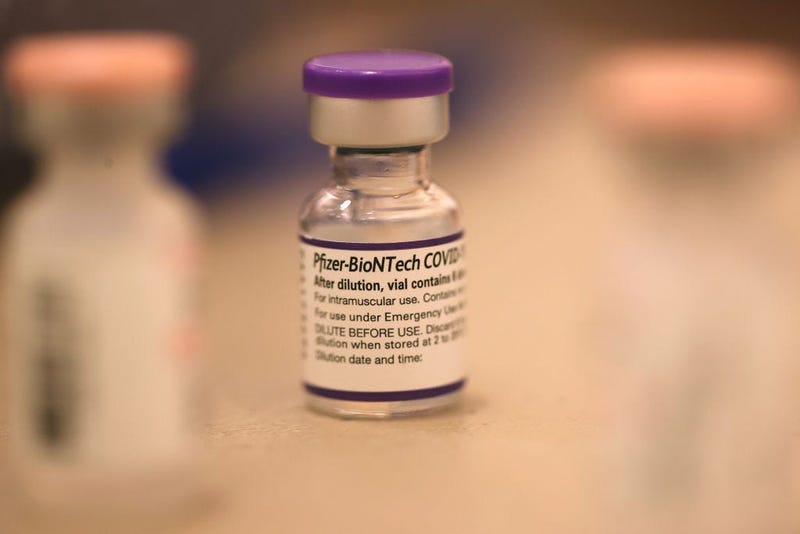
As the second round of COVID-19 boosters has been greenlit for certain members of the population, some are concerned that the more boosters people receive, the less beneficial, or even harmful, they can be on immune response.
For more, stream KCBS Radio now.
This new worry has been created by a theoretical concept known as "immune exhaustion," according to Dr. Peter Chin-Hong, a professor of medicine and an infectious disease expert at UCSF School of Medicine on KCBS Radio's "Ask an Expert" with Holly Quan and Jason Brooks.
The idea is that "our T-cells, the immune system inside of you that have memory get exhausted with seeing the same old, same old," he said.
But this concept is based on studies on cancer and HIV-positive patients, not on patients with COVID-19, where cancer and HIV cells have persisted so long in the body, that the immune system becomes exhausted.
"And that's why cancer breaks through and you need chemotherapy, or HIV breaks through and you need antiretroviral therapy," said Chin-Hong. "So it's really like comparing apples and oranges."

Getting a booster shot months in between each other just doesn't exhaust the immune system in the same way, he said.
Comparing the booster shot to antibiotics isn't accurate either. "First of all, they are different organisms, one is a bacteria, like staph, for example, and the other one is a virus," said Chin-Hong.
But most importantly, one is a treatment, people take antibiotics when the infection is already in the body. The booster is a preventative measure, meant to rev up the immune system to prevent the enemy from getting into the body in the future.
Now that the 4th shot is beginning to be distributed, health experts will have a better sense of its effectiveness in preventing serious illness.
Israel, which has been administering the 4th booster for some time now, has shown that while the booster does seem able to prevent hospitalization, it doesn't really protect against breakthrough infections, said Chin-Hong.
A more recently published Israel study of older members of the population, found that those who received the second Pfizer COVID-19 booster shot were 78% less likely to die from the virus than those who only got the first booster.
The study, conducted by Clalit Health Services, surveyed more than half a million people over the age of 60 and was taken during the last surge caused by the omicron variant.
"If you upscale it to a big country like the United States, you're talking about potentially thousands of lives saved during a surge and that’s the operating point here," said Chin-Hong.
And this is especially important as a new variant, XE, was confirmed over the weekend as an even more transmissable variant than BA.2.
So far, a few hundred cases have been documented in the United Kingdom. This strain doesn't cause serious illness, as it is a descendant of omicron.
"Hasn't exploded yet but people are definitely paying attention, including the WHO," said Chin-Hong.
LISTEN on the Audacy App
Sign Up and Follow Audacy
Facebook | Twitter | Instagram
